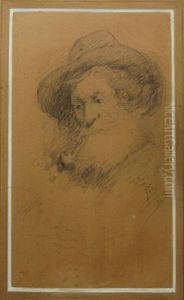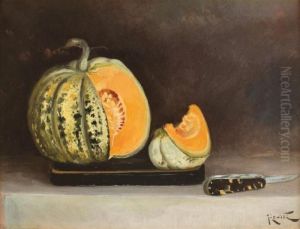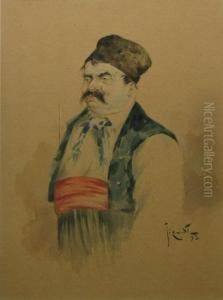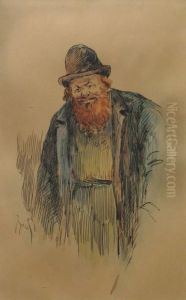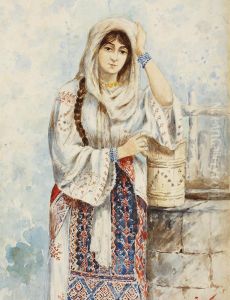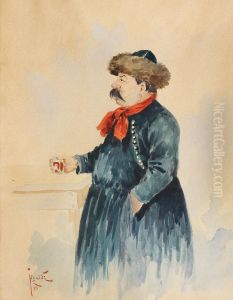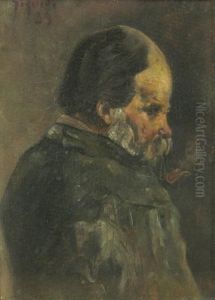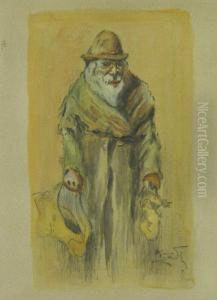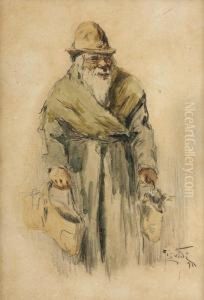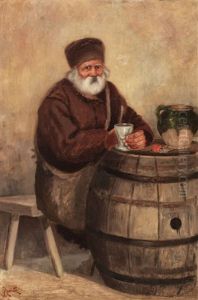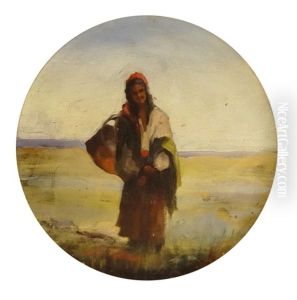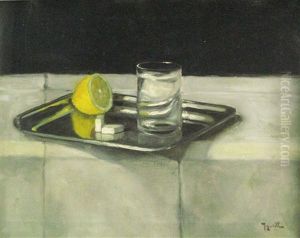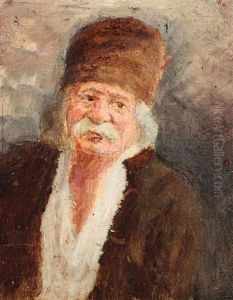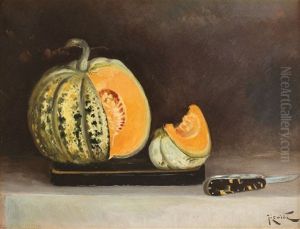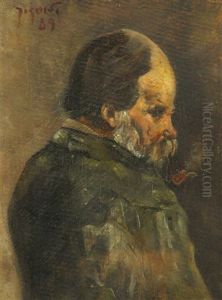Constantin Jiquidi Paintings
Constantin Jiquidi was a Romanian illustrator and caricaturist, born in 1855. He is known for his contribution to the development of Romanian caricature and illustration during the late 19th and early 20th centuries. Jiquidi's work was characterized by its humor, social critique, and keen observation of the Romanian society of his time. He was a pioneering figure in the Romanian visual arts scene, contributing significantly to the popular magazines and publications of the period.
Jiquidi received his artistic education in Romania and possibly abroad, though specific details about his studies are scarce. He emerged on the Romanian artistic scene in the latter part of the 19th century, a period marked by significant social and political changes in Romania. Jiquidi's art captured the essence of these transformations, using caricature as a tool to comment on the vices and virtues of society, the behavior of the political class, and the life of common people.
Throughout his career, Constantin Jiquidi collaborated with several important Romanian publications, such as 'Umorul' and 'Furnica', where his illustrations and cartoons reached a wide audience. His work was not only popular but also influential, inspiring a generation of Romanian artists to explore caricature and illustration.
Jiquidi's legacy is his contribution to the establishment of a Romanian visual satire tradition. His keen observations, wrapped in humor and artistic skill, provided a mirror for Romanian society, reflecting its complexities and challenges. Despite his death in 1907, Constantin Jiquidi's work remains an important part of Romania's cultural and artistic heritage, celebrated for its historical and aesthetic value.

